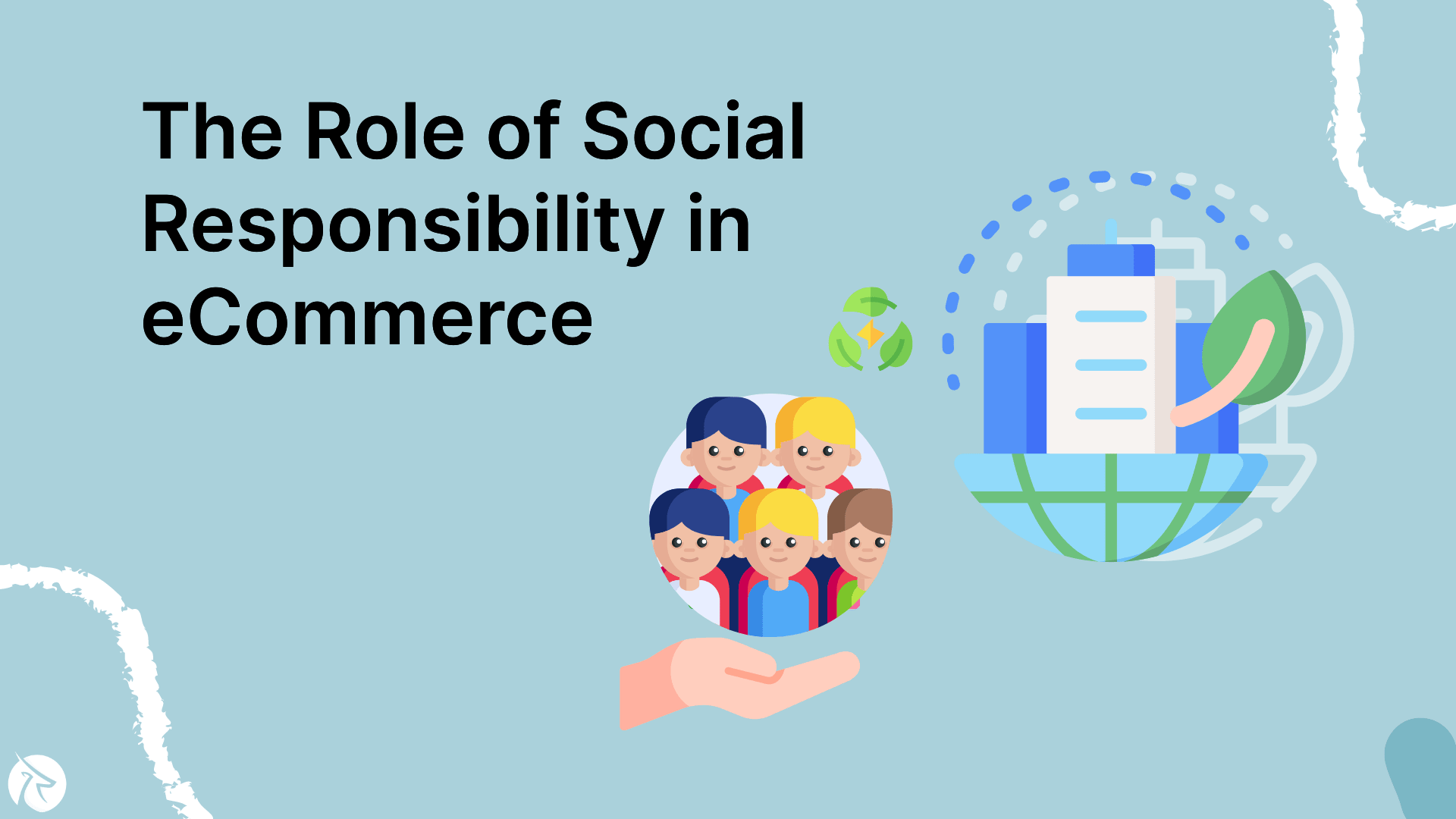Building a Better Tomorrow: The Role of Social Responsibility in eCommerce

In the age of digitalization, eCommerce has become an integral part of our lives. With the rise of eCommerce, many companies are increasingly incorporating social responsibility into their business models, hence the concept of “ethical eCommerce”. Ethical eCommerce refers to a company’s ability to conduct business while making deliberate efforts to promote social welfare and protect the environment. In this article, Fordeer will explore social responsibility in eCommerce and how it can be used to build a better tomorrow.
What is Social Responsibility?
Social responsibility refers to a company's obligation to take actions that protect and improve society's welfare. The actions taken by a socially responsible company, be they charity donations or the reduction of carbon emissions, are tied in with the company's ethical approach. Nowadays, society is more dependent on businesses, and they are expected to do their part to create a brighter tomorrow.

Role of Social Responsibility in eCommerce
eCommerce is one of the fastest-growing industries worldwide, and due to its digital nature, it has both advantages and disadvantages in terms of social responsibility. Because eCommerce businesses exist in a digital space and do not typically have a physical location, their environmental impact is generally lower than that of traditional brick-and-mortar stores. On the flip side, eCommerce businesses face their own unique set of challenges when it comes to operating ethically. These challenges include concerns around labor and human rights, fair trade and sustainable sourcing practices, and data privacy and security, among others.
Social responsibility can bring immense benefits for eCommerce businesses, including a broader reach, increased customer engagement and loyalty, a positive reputation, and increased profitability.
Broadening customer reach
By incorporating social responsibility into their business model, eCommerce businesses can appeal to customers looking to make positive choices with their purchases. Research has shown that customers are more likely to buy from a brand that is perceived to be socially responsible. In fact, a report by Sprout Social found that 74% of consumers say they use social media to learn more about a brand's corporate social responsibility efforts before making a purchase.
Generating positive customer engagement and loyalty
When companies make a visible effort to be socially responsible, it can lead to positive customer engagement and loyalty. A report by Cone Communications reveals that 87% of online customers consider a company's social responsibility when making purchasing decisions. Customers are more likely to engage with and remain loyal to a brand that they perceive as caring about social and environmental issues.

Building an outstanding reputation
Companies that have a strong reputation for social responsibility will attract more customers and retain existing ones. For instance, customers perceive companies that prioritize environmental and social welfare as more reliable and trustworthy than those that prioritize profits over social responsibility. This reputation can help businesses build long-term relationships with their customers and establish themselves as leaders in ethical eCommerce.
Increased profitability
Contrary to popular belief, incorporating social responsibility measures into your eCommerce business can help increase your profitability. A report by the Harvard Business Review shows that companies with strong social and environmental policies are more likely to outperform their peers in terms of financial performance. Additionally, responsible companies are often able to charge a premium for their products or services, as consumers are willing to pay more for products that align with their values.
Ethical Practices for eCommerce
With social responsibility, eCommerce businesses can build a better tomorrow. Here are some ethical practices that eCommerce businesses should incorporate into their daily operations:
Eco-friendly operations

E-commerce businesses have a lower footprint compared to their brick-and-mortar counterparts. The need to maintain this status involves environmentally friendly packaging, ethical sourcing of products, and reducing carbon emissions, among others. The use of renewable energy sources and waste reduction practices can also help reduce the environmental impact of the business. For example, Amazon, one of the world's largest eCommerce companies, has implemented several sustainability initiatives, including the use of electric delivery vehicles and the goal of achieving net-zero carbon emissions by 2040.
Fair labor practices
E-commerce companies should ensure that their operations adhere to labor laws related to working conditions, wage standards, and other human-rights factors. Socially responsible eCommerce businesses are known for fair trade practices, and their goal is to promote products made ethically. For instance, online retailer Everlane has a "radical transparency" policy that allows consumers to see the exact cost breakdown of the products they're purchasing, including the cost of labor.
Data security and privacy
Data privacy and security are the top concerns of online customers. For eCommerce companies to safeguard private information, they need to secure sensitive information, implement encryption tools, and implement database security measures. Additionally, companies should be transparent about their data collection and usage practices, providing customers with clear information on how their data is used and giving them the option to opt out if they choose. Companies that take data security and privacy seriously will build trust with customers and avoid potential legal and reputational issues.
Sustainability
E-commerce businesses can minimize their environmental impact by engaging in sustainable practices such as recycling, reducing waste, and implementing energy-saving measures. Companies should be responsible for the sustainable disposal of hazardous products like electronics and chemicals. For example, clothing company H&M has implemented a garment-collecting initiative that collects used clothing and recycles it into new clothing items.
Case Studies
TOMS

TOMS is a company that has become a case study in eCommerce. The company employs a “one for one” business model, whereby for each pair of shoes sold, a pair is donated to a child in need. The organization has donated over 60 million pairs of shoes to vulnerable children in over 70 countries globally. TOMS is an excellent example of a company that has blended social responsibility with business objectives, leading to positive customer engagement and profitability.
Patagonia

California-based Patagonia is an outdoor clothing company that has integrated social responsibility into its business model. The company prioritizes ethical sourcing with a pledge to use only organic cotton in all of its cotton products. Additionally, the company has maintained its focus on sustainability by undertaking several environmentally-friendly initiatives, like using recycled materials and reducing its carbon footprint via renewable energy. Patagonia has become a leader in the ethical eCommerce industry, attracting customers who value social and environmental responsibility.
All in all
In conclusion, the role of social responsibility in eCommerce is vital, and there is no better time for businesses to commit to sustainable practices. Ethical eCommerce practices should be a critical aspect of a business's objectives. With the industry set to experience growth, the need to make it sustainable is crucial. Incorporating practices such as eco-friendly operations, fair labor practices, data privacy, security, and sustainability will help companies achieve a positive reputation and increase profitability. By doing so, businesses will make great strides in building a better tomorrow, where society's welfare and the environment are protected and improved.
For more invaluable information, stay updated with Fordeer Team!
- Install Fordeer Apps for Free
- Get immediate assistance by chatting with us.
- Join Fordeer Commerce Community for fresh app updates, expert tips, and private deals.











